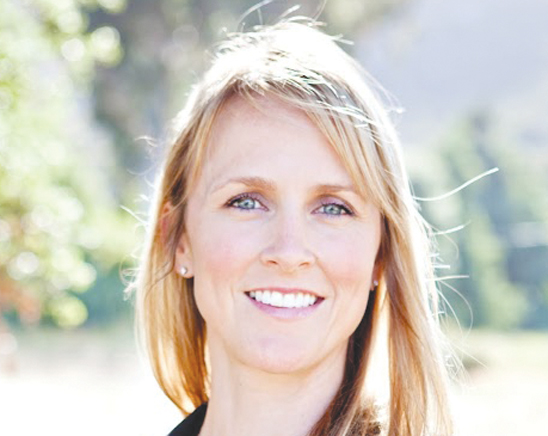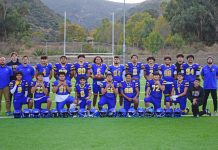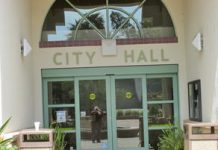The concept of Blue Zones was introduced in 2005 in an article by Dan Buettner in National Geographic in a cover article titled, “The Secrets of a Long Life”.
In this article, Buettner introduced his research into longevity and identified five geographic areas (The Blue Zones) in which people live statistically longer and healthier lives.
People living in these areas lived longer – many over 100 years old (“centenarians”) and lived disease free for much of their lives in comparison to other parts of the world. Although the areas are diverse geographically, they have commonalities that, according to the research, are the likely source of health and longevity. The five regions identified include:
• Sardinia, Italy
• Okinawa, Japan
• Loma Linda, California
• Nicoya Peninsula, Costa Rica
• Icaria, Greece
Let’s add Catalina Island to this list! The factors that were born out of the research are doable for any community. However, our community is uniquely primed to incorporate the Blue Zone road map into our daily lives.
Reduce stress
The first element on the Blue Zone list, stress, is ubiquitous and the risks to our health are underestimated. Stress is something that everyone on the planet has to contend with—without exception.
What is unique about the people who live in Blue Zones is how they deal with stress.
These populations reliably take time out of every day to unwind and de-stress. Prayer, happy hour, or a daily nap is how many of these residents off load stress.
To improve the health and longevity in our community, we have to take time every day to purposefully slow down and shed stress.
The next factor that was found to increase longevity was a sense of purpose. Having a sense of drive and purpose has been estimated to add up to seven years to your life expectancy.
If you are retired, find a volunteer opportunity that inspires you. If you wake up dreading your job, it’s time to change careers. The Okinawans call it “Ikigai” – which loosely translates to “why I wake up in the morning.”
Find your ikigai and it will improve your health. Our community would also benefit. Imagine the impact of a community full of people living and working from a space of inspiration. The ripple effect of that positive energy would spread between each of us and also outward to our visitors and beyond.
Third on the Blue Zone road map is to move every day. Centenarians in the Blue Zones reliably incorporated movement into their everyday lives without thinking about it. They do not run marathons or ride stationary bikes. Their lives require movement.
Their primary source of transportation is walking or a bike, they tend their own gardens, they mow their own lawns. Catalina is a small enough community where walking should be an integral part of all of our daily routines but instead, we all jump into our golf carts to travel two blocks. To increase our longevity, we are going to have to ditch the golf carts and get moving.
Reduce caloric
intake
The 80% rule is another factor that was found to improve longevity for the Blue Zone populations.
In Okinawa, the mantra “hara hachi bu” is recited before meals to remind them to eat until they are 80% full. The Blue Zoners tend to eat to 80% capacity and also eat their largest meal earlier in the day. This style of eating leads to less caloric intake and subsequently, healthier weights. Portion control is a major issue that contributes to our obesity epidemic. Thus adhering to the 80% rule will help us decrease our waist lines and increase our time lines.
Further, plant based diets are foundational in the Blue Zone lifestyle. Most of these populations only eat meat 4-5 times per month and primarily rely on legumes and fresh, local fruits and vegetables as their dietary staples. To put Catalina on the Blue Zone map, we need to shift our dietary practices and limit the amount of processed, fried, meat-heavy, carb-heavy foods we consume. Incorporating more plant based whole foods at home and requesting healthier options when we go out to the local restaurants will improve the health of our families and the community as a whole.
Drink one or two
glasses of wine
The next element on the Blue Zone list is my favorite … wine at 5! All the Blue Zone populations (with the exception of Loma Linda Adventists), regularly drink 1-2 glasses of wine per day. Remember, moderation is key! Studies show that moderate consumption of alcohol can improve longevity; however, the benefits vanish when we overdo it.
Have faith
A sense of belonging and connection to a faith based community is the next factor related to improved longevity in the Blue Zones. Research studies show that attending religious services once per week (denomination is inconsequential) can add up to 14 years to your life. Catalina boasts many wonderful opportunities to attend faith based services.
If church isn’t your thing, consider organizing a meet-up with others in the community who might also be interested in joining a smaller study group.
The Blue Zone research also found that those who lived the longest had strong social circles that supported each other in maintaining healthy behaviors. Groups of friends and/or family engaging in a healthy lifestyle make it more sustainable and fun for all those involved. We tend to engage in the same activities as those closest to us – which can be either a positive or negative thing.
To put Catalina on the Blue Zone map, we all need to gather our tribes and surround ourselves with people who are positive and motivated in supporting each other on our road to wellness.
Invest in family relationships
The final factor that was common among all the longest living populations was a deep connection to family. Most had multiple generations living together or very near each other. Many also had committed lifelong relationships or marriages. Investing in our family relationships (either family that we are born into or the families that we choose, i.e. close friends, partners, etc.) can add years to our lives.
Catalina Island is a unique little spot in the world. We have a walk-friendly community, gorgeous surroundings that beckon outdoor activity, and a small tight knit community that rallies around its own when support is needed.
To put Catalina on the Blue Zone map, however, we have some work to do. By simply committing to walking more and eating more plant based foods we can make great strides in creating our own little Blue Zone. Of equal importance, I also challenge each of us to reach beyond our usual social groups and extend kindness and connection to a community member that may not be part of our usual group.
Working in the clinic has shown me the beautifully rich social and family connections that many of our community members enjoy. It has also revealed the crushing loneliness that some others feel who do not have such connections. It is estimated in the research that loneliness can be as detrimental to your health as smoking 15 cigarettes a day. Human connection is an amazingly powerful tool that we can all wield to improve health and longevity in ourselves, our families, and our neighbors. We all have the power to transform our beautiful little island into the next Blue Zone. I hope you will join me on this worthy path.
Aimee Warren D.O., is a physician with the Catalina Island Medical Center.











